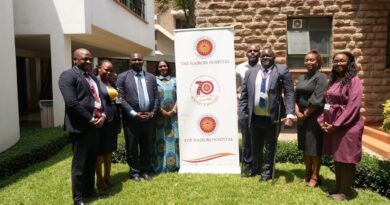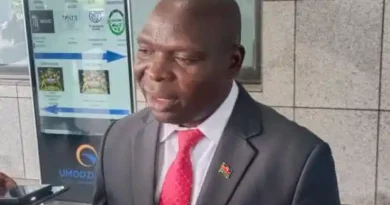Zambia Calls for International Aid to Strengthen Local Climate Action
Zambia’s Ministry of Local Government and Rural Development has called on the international community to support the country’s Integrated Development Planning (IDPs) during COP30 in Belem, Brazil.
The Ministry emphasised that such support will enable Local Authorities to embed climate change adaptation and mitigation strategies directly into core planning, budgeting, and service delivery processes.
Dr Gabriel Pollen, Permanent Secretary (Administration) at the Ministry, highlighted the importance of empowering Local Authorities, ensuring that climate action is not treated as an isolated initiative but as a fundamental aspect of all local government functions.
“Local Authorities possess unique knowledge of their territories’ capacity to withstand climate risks, which is essential for accurate risk assessments and developing effective plans. This knowledge plays a critical role in preventing future climate vulnerability,” Dr Pollen stated.
Speaking on the sidelines of COP30, he stressed that legally mandated IDPs provide a framework for Local Authorities to move beyond standalone climate action plans, creating cohesive, long-term strategies for resilient and sustainable communities.
Dr Pollen further explained that IDPs are pivotal in enhancing rural development, guiding the use of the Constituency Development Fund (CDF) to ensure projects are community-driven, aligned with local needs, and integrated into broader development strategies, including climate action.
“IDPs provide the blueprint, while the CDF provides the funding mechanism, ensuring a structured and locally relevant approach to development,” he added.
The Permanent Secretary highlighted that Local Authorities are essential for implementing climate resilience projects, as they manage land use, infrastructure, and possess deep knowledge of local climate risks. He emphasised the need for financial and technical support to ensure infrastructure, such as water systems and transport networks, is climate-resilient.
Dr Pollen concluded by urging global partners to support Local Authorities, who are on the front line of implementing and maintaining resilience projects—from small-scale adaptation efforts to major infrastructure initiatives—ensuring the effective delivery of these projects at the community level.
COP30, the 30th United Nations Climate Change Conference of the Parties, is being held in Belem, Brazil, bringing together countries to negotiate and make decisions on climate action, building on previous agreements such as the Paris Agreement. Key discussions include presenting national climate plans and mobilising climate finance.



